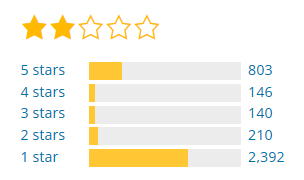
In February 2019, I introduced an alternative to the WordPress block editor, shedding light on a newer content management system (CMS) called ClassicPress. Launched on August 18, 2018, by Scott Bowler, ClassicPress is a fork of WordPress, meaning it utilizes WordPress’s source code.
Fast forward almost three years and ClassicPress still feels like the new kid on the block. Now, you’re faced with a choice: WordPress or ClassicPress, and within WordPress, the decision between the block editor and the classic editor.
The Block Editor: WordPress’s Bold Move
The WordPress community, which powers 40% of the internet and 60% of the CMS market, is experiencing a monumental shift with the introduction of the block editor, part of the Gutenberg ecosystem.
The block editor promises streamlined content creation, even for those without coding skills. Having explored Gutenberg for theme development and on the Rough Pixels website, I’ve seen its advantages. However, it’s essential to acknowledge its shortcomings compared to the classic way of creating content.
Initially designed to replace the classic editor, WordPress’s plans have expanded. It’s set to become a full-fledged page builder, akin to Squarespace and Wix, with Front-Site Editing (FSE) on the horizon.
Mixed Feelings About the Block Editor
Since Gutenberg’s arrival, it hasn’t received universal acclaim—except with the WordPress development team. Despite negative reviews, WordPress persists, and many third-party developers remain cautious. As of now, Gutenberg’s plugin version faces significant likability challenges.
At the time of updating this article, Gutenberg currently has a serious likeability problem.
This rating is for the Gutenberg Plugin version.

Technically, the plugin version serves as a beta testing ground before its integration into the core. WordPress needs stability and effective marketing to enthuse its user base. The majority still prefers the classic editor, and resistance to the block editor persists and it, in my opinion, will continue.
Embracing the Classic Editor
With the widespread discontent surrounding the block editor and Gutenberg, the big question is, “Do you have to use it?” The answer is no.
There are several ways to disable the block editor and Gutenberg:
- Theme Settings: Depending on your theme, you may find an option to disable Gutenberg. Consult your theme’s documentation for guidance.
- Plugins: Several plugins allow you to disable Gutenberg and revert to the classic editor. Options include Classic Editor, Classic Editor Addon, and Disable Gutenberg, each offering varying degrees of control.
- Code: For developers, disabling Gutenberg through code is an option, preferably using a child theme to avoid issues with updates. Simply add the following to your functions.php file:
add_filter('use_block_editor_for_post', '__return_false', 10);
Your Choice, For Now
There are several reasons why you might want to disable the Gutenberg WordPress editor temporarily:
- You’re not ready for the change.
- The classic editor is more familiar and comfortable.
- Compatibility issues with third-party plugins or themes.
- A preference for page builder plugins like Elementor.
- A desire to wait for Gutenberg’s stability.
- Concerns about content conversion to blocks.
Restoring the previous WordPress editor is straightforward, and many users plan to stick with the classic editor for as long as possible.
The Future of the Classic Editor
As WordPress continues to evolve, the future of the classic editor remains uncertain. Justin Tadlock reported in his article, “WordPress Classic Editor Support Extended for at Least Another Year“, that support for the Classic Editor plugin would extend beyond the original 2021 deadline. It’s expected this will last throughout 2024.
While classic block editor users have a lifespan extension, it’s essential to recognize that the block editor’s eventual incompatibility with the classic editor is inevitable. WordPress is on a path of transformation, and it’s up to users to decide how they will adapt to these changes.
I’m curious to hear your honest opinion on the block editor and where WordPress is heading. Comment below.